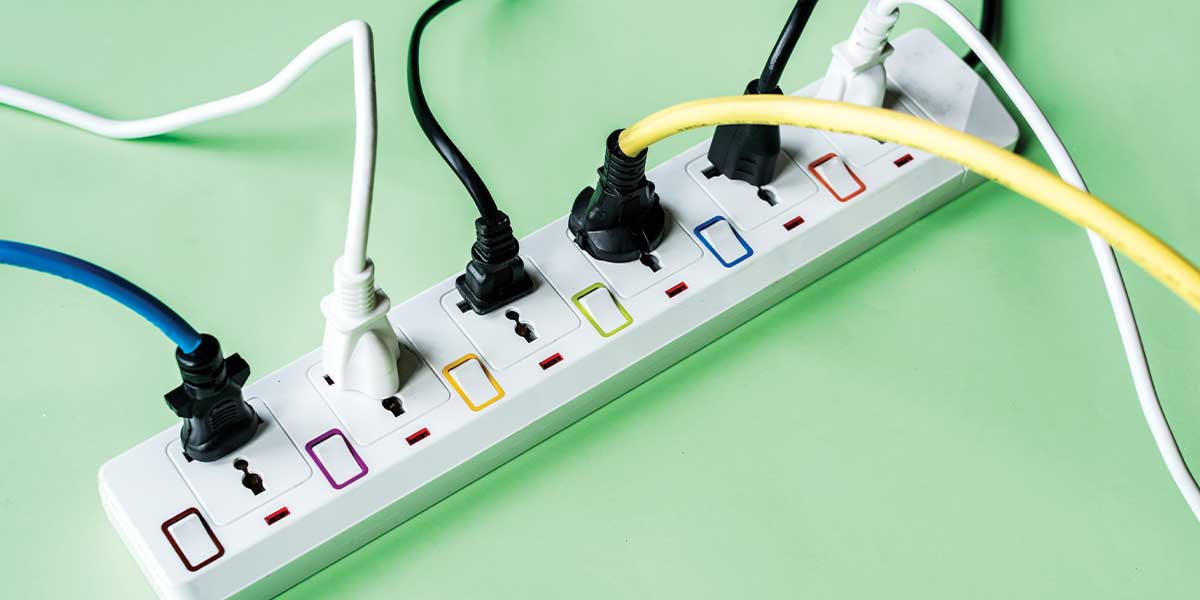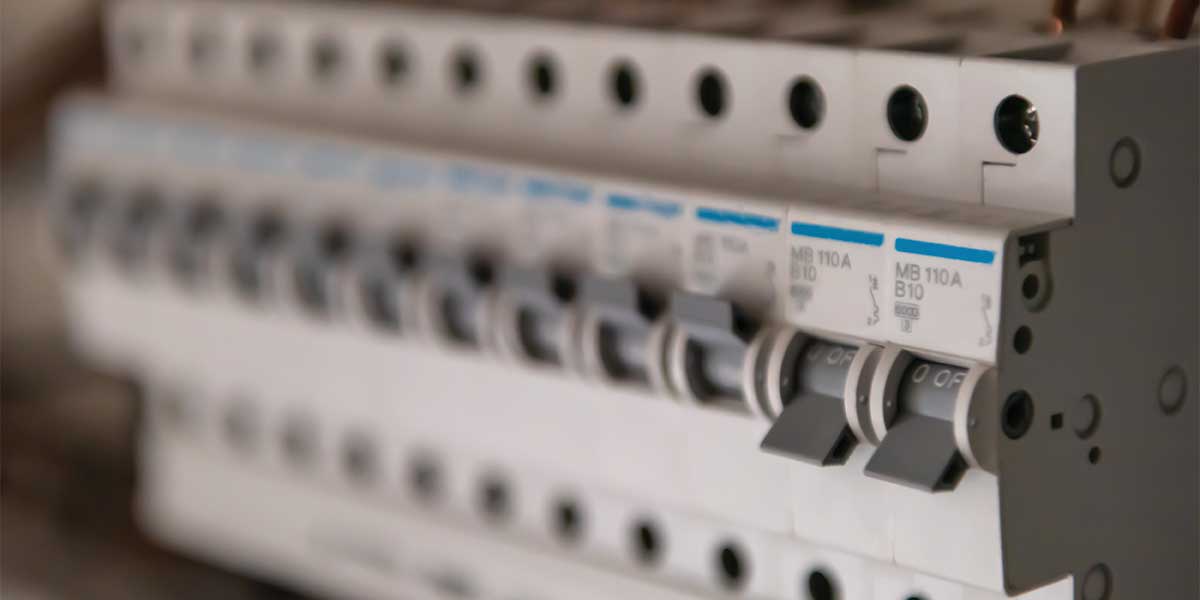There are many reasons your circuit breaker might trip. Some causes are minor and easy to fix, while others can put your home and family at serious risk. That’s why understanding the common causes of a tripped circuit is so important. At Expert Electric, our team of fully licensed and experienced electricians is here to help diagnose, repair, and prevent electrical problems of any size, so you can keep your home safe, efficient, and powered without interruptions.
Why Do My Breakers Keep Tripping?
Circuit breakers are the unsung heroes of your home’s electrical system. They act as safety switches, shutting off power when something goes wrong. Without breakers, even a small overload or wiring issue could lead to sparks, electrical fires, or damage to your appliances.
When you understand the common causes of a tripped circuit, you can take steps to protect your home and call for professional help when it matters most.
The Main Reasons Breakers Trip
- Overloaded circuits – when you ask for more electricity than the circuit can handle.
- Short circuits – when wires come into contact in unsafe ways.
- Ground faults – when electricity flows where it shouldn’t.
Ignoring these signs isn’t just inconvenient, it’s dangerous. If your breaker is constantly shutting off, it’s not “just a nuisance.” It’s a warning that something needs attention.
Common Causes of a Tripped Circuit
Let’s explore the most frequent issues that homeowners face and what you can do about them.
1. Overloaded Circuits
The most common cause of a tripped circuit breaker is an overloaded circuit. This happens when too many appliances or devices are plugged into one circuit, pulling more power than it was designed to handle.
Examples of appliances that often cause overloads include:
-
Space heaters
-
Hairdryers
-
Microwaves
-
Vacuums
-
Air conditioners
-
Power-hungry tools (like saws or drills)
Signs you may have an overloaded circuit:
-
Breakers trip when you turn on multiple devices.
-
Lights flicker when large appliances start up.
-
Outlets feel warm to the touch.
What to do:
-
Unplug devices you don’t need.
-
Spread appliances across multiple circuits.
-
Upgrade your electrical panel if overloads are frequent.
2. Short Circuits
A short circuit occurs when a live (hot) wire touches a neutral wire. This creates a surge of electricity that the breaker instantly shuts down to prevent overheating and fire.
Causes of short circuits include:
-
Damaged wiring
-
Loose connections
-
Faulty outlets or switches
-
Defective appliances
Short circuits can create sparks, smoke, or even loud popping sounds. If you notice these, immediately turn off power to the area and call a licensed electrician.
3. Ground Fault Surges
A ground fault surge is similar to a short circuit but involves a hot wire touching a ground wire, a metal box, or another grounded surface. These are extremely dangerous because they can cause electrical shocks and fires.
Common causes of ground faults:
-
Damaged insulation around wires
-
Faulty tools or appliances
-
Moisture getting into outlets or wiring
Why this is serious: Ground faults are one of the leading causes of accidental electrocution. If your breaker trips due to a ground fault, call an electrician immediately, never ignore it.

Less Obvious Causes of a Tripped Circuit
While overloads, short circuits, and ground faults are the most common, there are other issues homeowners should watch out for.
- Arc Faults – A type of electrical discharge that happens when wires are damaged or loose. Modern homes often have AFCI breakers to protect against these hazards.
- Old Electrical Panels – Outdated breaker boxes may trip more often because they weren’t designed to handle today’s appliance-heavy homes.
- Moisture and Outdoor Wiring – In areas like Vancouver and the Lower Mainland, damp weather can seep into electrical systems, causing breakers to trip more often.
- Faulty Appliances – Sometimes it’s not your wiring, it’s the appliance itself. Old refrigerators, microwaves, or heaters can trigger breaker trips.
Why You Shouldn’t Ignore a Tripped Circuit
Some homeowners reset the breaker and forget about it. But frequent trips mean something is wrong. Ignoring it can lead to:
- Fire hazards
- Damaged electronics
- Higher energy bills
- Serious electrical injuries
The safest solution? Call a licensed professional. At Expert Electric, we specialize in diagnosing the root cause of electrical issues and providing long-term solutions.
Preventing Tripped Circuits
Here are a few ways to avoid constant breaker trips:
- Don’t overload outlets. Spread appliances across different rooms.
- Upgrade your system. If you’re adding new appliances, consider panel upgrades.
- Use surge protectors. They can prevent small electrical issues from becoming big problems.
- Schedule regular inspections. A licensed electrician can catch issues before they become dangerous. For more information on identifying and avoiding potential electrical hazards, check out the Canadian Centre for Occupational Health and Safety’s guide
FAQs About Tripped Circuits
Q: Why does my breaker trip when I use my microwave or hairdryer?
A: These appliances draw a lot of power. If they’re on the same circuit as other devices, it can cause an overload.
Q: Can I reset a tripped breaker myself?
A: Yes, but only if it doesn’t happen often. If the same breaker trips repeatedly, call a professional, it’s a sign of a deeper issue.
Q: What should I do if I smell burning when my breaker trips?
A: Turn off the breaker immediately and call an electrician. A burning smell is a serious warning sign.
Q: How can I tell if my circuit breaker needs replacement?
A: If your breaker is hot to the touch, trips constantly without cause, or won’t reset properly, it may need replacement.
Final Thought
Understanding the common causes of a tripped circuit helps you protect your home from electrical hazards. While some issues are easy to resolve, others can put your family and property at serious risk. The safest choice is to trust a professional.
At Expert Electric, we’ve been serving homeowners across Vancouver and the Lower Mainland for years. From troubleshooting tripped circuits to upgrading electrical panels, we provide reliable, safe, and professional service every time.
Contact Expert Electric
📞 Call Us: 604-681-8338
📧 Email Us: info@expertelectric.ca
Whether you’re dealing with a single breaker trip or repeated electrical problems, our licensed electricians are here to help. Don’t wait until a minor issue becomes a major hazard, contact Expert Electric today!


